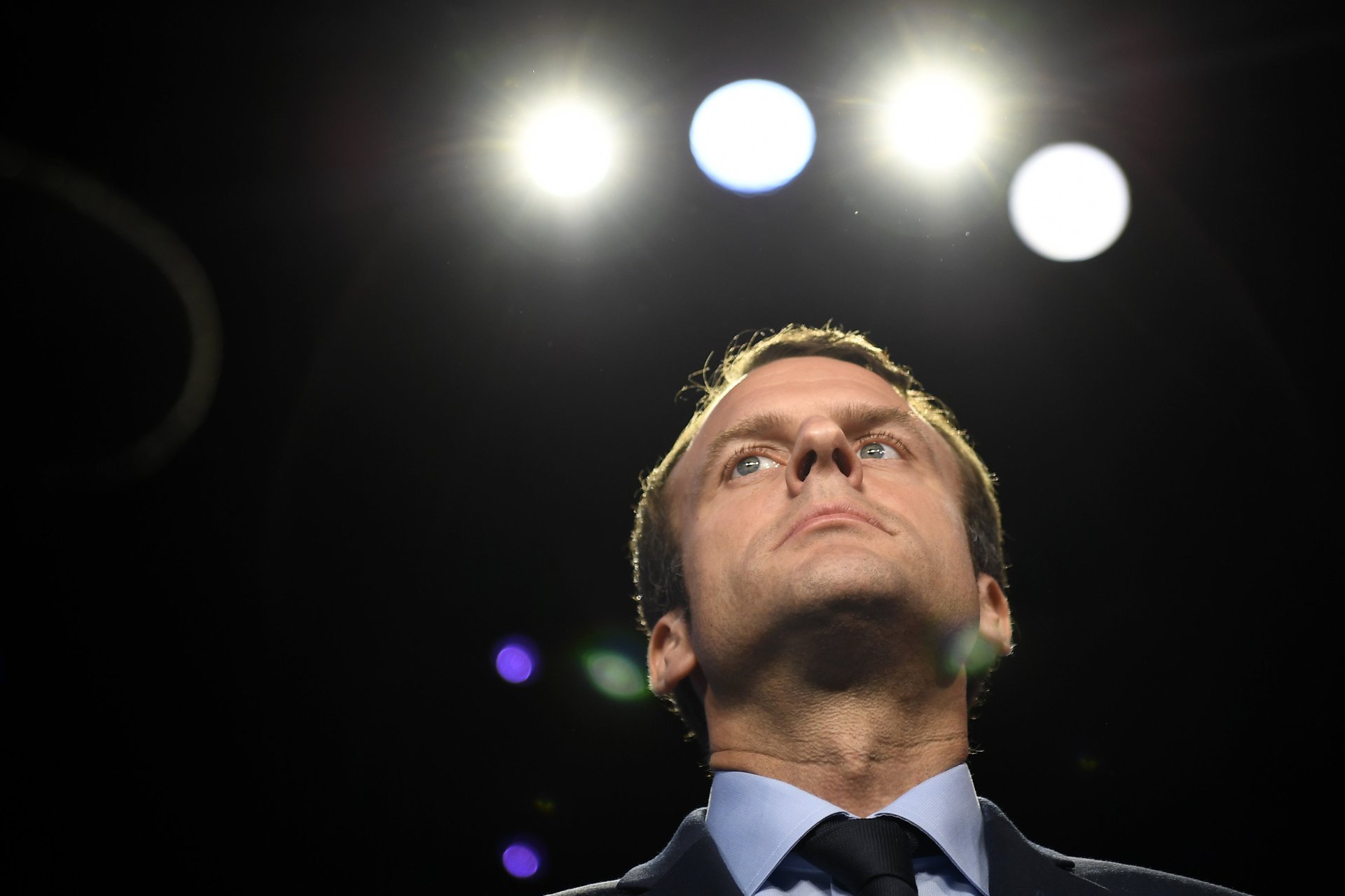All but one of France’s presidential candidates want to reverse globalization
France’s presidential election is shaping up to be a battle between two opposing forces: those who want France to be open to the world, and those who think restoring its glory requires remaining closed. But the candidates’ platforms suggest that one of these forces is far stronger than the other.


France’s presidential election is shaping up to be a battle between two opposing forces: those who want France to be open to the world, and those who think restoring its glory requires remaining closed. But the candidates’ platforms suggest that one of these forces is far stronger than the other.
Ten out of the 11 candidates competing to be France’s next president have pledged to fight the forces of globalization in myriad ways. If polls are any indication, French voters may end up deciding between protectionist Marine Le Pen, of France’s far-right National Front, and globalist Emmanuel Macron, the upstart candidate pushing a liberal agenda.
But in a groundbreaking election characterized by uncertainty, many other match-ups are possible. And nearly all of them would come down to two finalists both set on a more inward-looking France, with potentially massive repercussions (paywall) across Europe.
Free trade
Macron is the only candidate explicitly in favor (link in French) of the comprehensive free trade deal between Canada and the EU. The pact, which has yet to be ratified by EU national parliaments, would make it easier and cheaper for French companies to export goods and services to Canada (roughly 10,000 French companies export to Canada). Most other candidates argue these agreements benefit big multinational companies at the expense of the environment, and French workers and consumers. The exception is conservative candidate François Fillon, whose stance on the pact is neither here nor there.
Still, Fillon has joined every candidate but Macron in publicly opposing the Transatlantic Free Trade Area (or TAFTA), a proposal to create a free trade agreement between the EU and the US.
NATO
Most presidential candidates are also anti-NATO (link in French). Six of the 11 candidates are pushing for France to leave the transatlantic alliance, including top contenders Mélenchon and Le Pen. Conservative Fillon has been vocally critical (pdf) of the alliance’s dependence on US interests and its inability to combat global terrorism (link in French). Only Hamon and Macron want France to remain in NATO (link in French) with few to no strings attached.
Immigration
On the thorny topic of immigration, the candidates are mixed. Several favor immigration quotas (link in French) to stem the tide of migrants flowing into France, including Le Pen, Fillon, and right-wing candidate Nicolas Dupont-Aignan. Le Pen also wants to tax employers hiring foreigners and raise the bar on who can become a French citizen.
Mélenchon, Hamon, and Macron all oppose quotas, but Mélenchon has proposed reversing (paywall) the onslaught of migrants by addressing the problem’s root causes (for instance, environmental damage and war).
Culture shock
The protectionist bent is not new (pdf) to France. In a 2016 year study (pdf) by German think tank the Bertelsmann Foundation, 54% of the French considered globalization as a threat, a higher proportion than every other EU country except Austria, thanks in part to immigration fears. In a separate YouGov poll published last year, French respondents were least likely to see globalization as a force for good, and ranked second to last among countries surveyed on its view of immigrants (ahead of Indonesia).
No doubt the 2015 Paris terrorist attacks, where at least one attacker was able to slip into France posing as a refugee, deepened these fears.